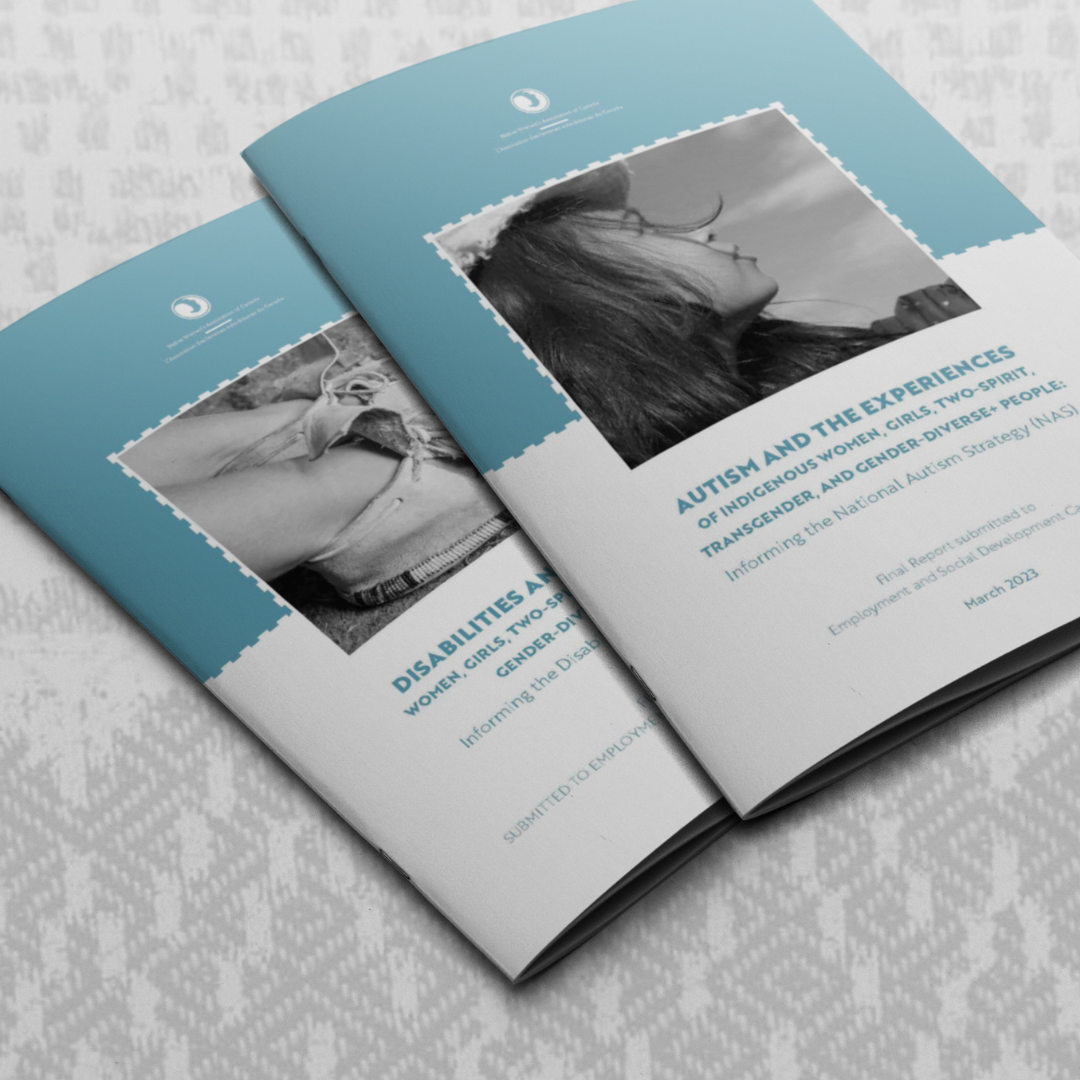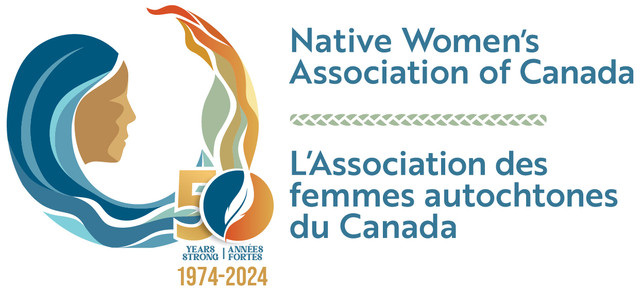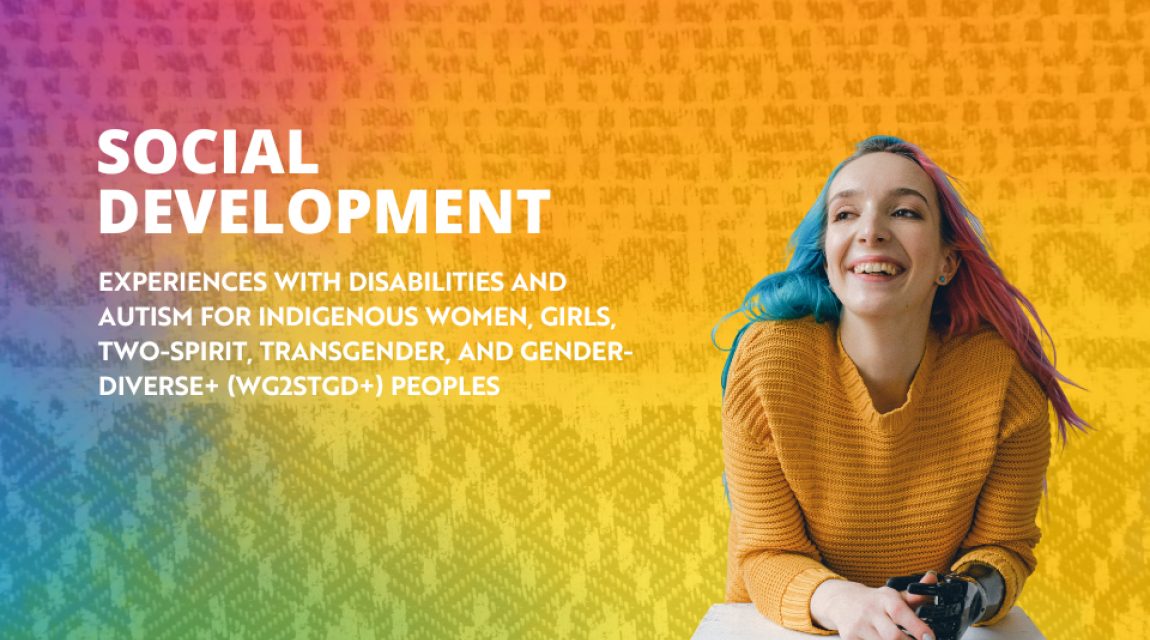Experiences with Disabilities and Autism for Indigenous Women, Girls, Two-Spirit, Transgender, and Gender-Diverse+ (WG2STGD+) Peoples
With funding from Employment and Social Development Canada, NWAC completed two projects advocating and increasing understanding for the many issues and systemic barriers faced by Indigenous WG2STGD+ Peoples living with disabilities. We conducted extensive research and held a series of Sharing Circles, where participants shared their lived experiences and talked about their barriers and challenges. The outcome of these projects are two final reports, one to help inform the federal government’s Disability Inclusion Action Plan (DIAP) and the other to help inform the National Autism Strategy (NAS).

Overall, Indigenous Peoples are more likely to have a disability than non-Indigenous people. They are also more susceptible to living with mental and physical disabilities because of the social and political climate as well as the retraumatizing impact that colonialism continues to have on Indigenous communities. In addition, Indigenous WG2STGD+ Peoples are more likely to live with pain- and mental health-related disabilities than both non-Indigenous women and Indigenous men.

